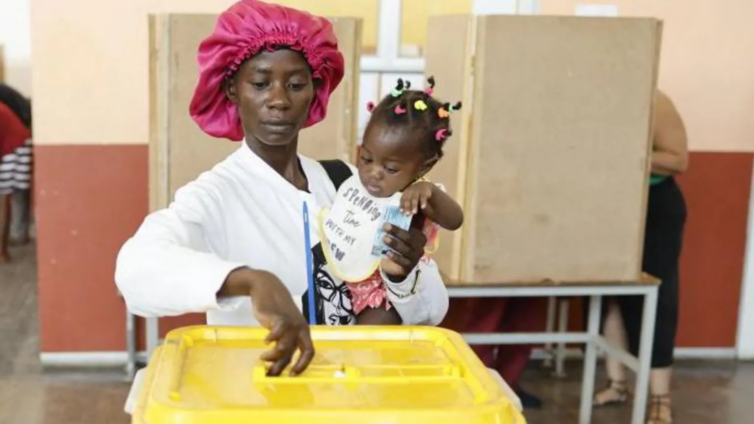Namibia’s main opposition party has said it will not recognise results from this week’s general election, where there have been logistical problems and voting was extended in several places.
In a statement on Saturday, Panduleni Itula, the presidential candidate for the opposition Independent Patriots for Change (IPC) alleged there had been “glaring and undeniable” electoral malpractices.
He had been aiming to defeat the candidate for the South West Africa People's Organisation (Swapo), which has been in power since independence in 1990.
Swapo’s flagbearer, Netumbo Nandi-Ndaitwah, is seeking to become the country’s first female president.
Voting began on Wednesday but in parts of the country continued up until Saturday, following a lack of ballot papers in some places as well as malfunctioning technical equipment.
Namibia is a geographically vast nation with about three million people, around half of whom are registered to vote.
"We shall not, under any circumstances, recognise the outcome of the 2024 election… that is still, in our opinion, illegitimately continuing,” Itula told a press conference on Saturday, while calling for calm.
The IPC has said it will “pursue justice through the courts” and has encouraged people who felt that they had been unable to vote because of mismanagement by the electoral commission to go to the police to make a statement.
Meanwhile, votes are being counted and results in the presidential election from 10 of the 121 constituencies have been announced.
So far, Nandi-Ndaitwah has 48% of the vote to Itula’s 30%. A candidate needs more than half the ballots cast in order to win in the first round, otherwise there will be a second-round run-off.
Swapo, which led the liberation struggle against apartheid South Africa, has dominated politics in the country for 34 years.
But its popularity has been on the wane and in the last election in 2019 its vote share in the presidential poll fell below 60% for the first time.
It is facing challenges similar to other liberation movements in the region, which saw South Africa’s African National Congress lose its outright parliamentary majority in May and the Botswana Democratic Party kicked out of power after nearly six decades following last month's election.
Latest Stories
-
Kyiv Summit reaffirms global commitment to food security amid rising crises
2 mins -
Ukraine has saved 20m from hunger despite Russian aggression, says Zelensky
13 mins -
Dr. Mahamudu Bawumia: The leader to deliver on promises and drive sustainable growth
42 mins -
Election 2024, Vote wisely.
2 hours -
Libi Prime: modern townhomes in Community 26, Tema – show home now available for viewing
2 hours -
The Northern brothers’ presidential contest: A chance to challenge or confirm the stereotype of violence?
2 hours -
The Model Institute: Shaping the future of professional modeling in Ghana
2 hours -
Election 2024: Akufo-Addo endorses Bawumia as the leading candidate
2 hours -
A John Mahama Agro-Economic Transformation through a 24-Hour Economy – Dr. Peter Boamah Otokunor
2 hours -
Tax cuts alone won’t fix Ghana’s revenue problem; focus on compliance – Economist
2 hours -
Ghana cannot afford luxury of prolonged fruitless litigations – Asantehene
2 hours -
Free dialysis: NHIA releases ¢200m claims payment to health facilities as treatment begins nationwide
2 hours -
Archbishop Agyinasare calls for divine guidance ahead of December 7 polls
3 hours -
Tax cuts are appealing, but could deepen economic challenges – Analyst cautions incoming government
3 hours -
NDC’s Opoku-Agyemang urges security services to consider economic challenges when voting
3 hours

